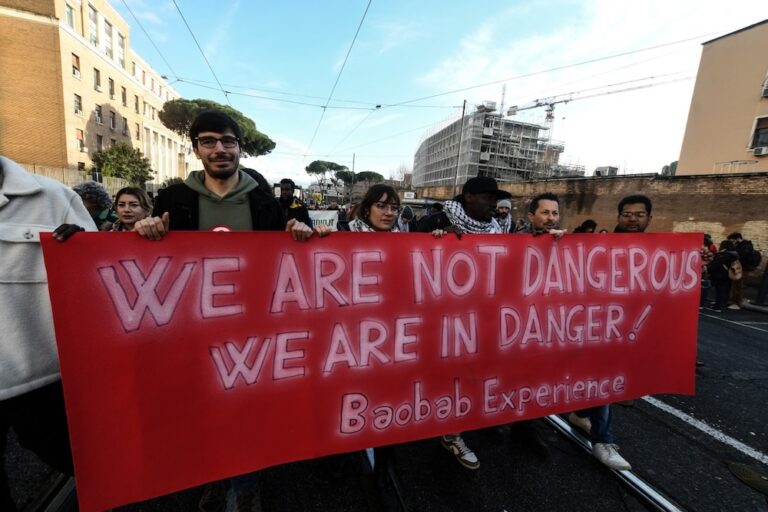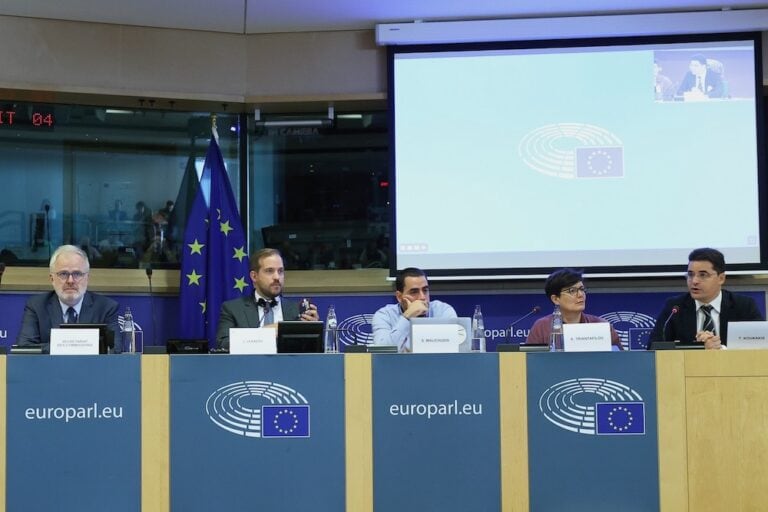IPI is also concerned that current defamation laws encourage self-censorship.
(IPI/IFEX) – 15 April 2011 – The International Press Institute (IPI) has recently concluded a three-day follow-up visit to Italy, ending Thursday, where it examined potential challenges to the pluralism of Italy’s audiovisual sector resulting from the country’s digital switchover. IPI suggested that pluralism may be bolstered by the switchover, if the value of pluralism is taken into strong consideration in the establishment of the criteria for the technological move.
IPI also expressed concern at the frequent use of civil defamation cases against journalists, as well as the occasional use of criminal defamation provisions – broadly considered outdated – which goes against international standards on press freedom.
Journalists told IPI that frequent requests for exorbitant compensatory fines by people whose reputation has allegedly been damaged leads to undue influence over content by media owners and publishers, who do not want to, themselves, become embroiled in lengthy and costly legal cases. IPI believes that the imposition of criminal sanctions and disproportionate fines against journalists has a chilling effect on media reporting and leads to self-censorship with regard to matters of public interest. As a consequence, the public fails to receive important information.
On the issue of pluralism, following an analysis of the situation in Italy and talks with experts in the field, IPI warned of a danger that dominant interests in the audiovisual sector could be consolidated after the country’s digital switchover.
Italy has seen significant delays in the digitalization process, which was originally expected to be finalized by 2006. Today, with approximately half of Italy’s 21 provinces and slightly over half of the Italian population enjoying access to digital television, the state has yet to determine which audiovisual providers will eventually be able to operate, in addition to the current operators, which will automatically receive as many digital multiplex frequencies as they currently have.
The criteria currently in place for the tender, which will assign five additional digital multiplex frequencies, appear to favor current operators, as they require a diversification of content that new entrants have difficulties in offering.
IPI believes that, in order to encourage greater pluralism, the criteria for the tender should favor new entrants, rather than the incumbent ones.
There are serious concerns that the outcome of the tender may consolidate the current duopolistic environment, in which the public broadcaster, Rai, and the private broadcasting network, Mediaset – which belongs to Italy’s prime minister, Silvio Berlusconi – control over 75% of the market in terms of audience share.
Furthermore, the dates of the tender, which will be held by the Ministry of Economic Development, have yet to be set and the continued postponement preserves a “status quo” that IPI has often condemned for not providing sufficient guarantees for external pluralism.
In a meeting with representatives of Italy’s Agcom, the statutory agency in charge of ensuring fair competition among the players in the communications market, IPI expressed concern at Italian legal provisions capping total income that any one company may derive at 20% of the total income of the so-called Integrated Communications System (SIC), which includes industries in the broader communications sector (including print, broadcast and Internet-based media, as well as cinema and advertising). This allows for the existence of dominant positions in sub-areas of the SIC, such as the audiovisual market.
An Agcom representative told IPI that a 2005 Agcom analysis showed that Rai and Mediaset occupy dominant positions in the broadcasting market and that while the law does not foresee any fines in this situation, Agcom was authorized to impose administrative sanctions on Rai and Mediaset. IPI, however, believes that these administrative remedies did not have the desired effect of weakening their too-dominant positions.
IPI also invited Agcom to include new indicators in their analysis of the audiovisual sector, such as audience share and distribution of resources from advertising and TV fees. Any regulation seeking to ensure external pluralism by limiting the relative market influence of one single company needs also to take into consideration these indicators.
During its follow-up visit to Italy, IPI met with representatives of media organizations, journalists’ associations and public media regulatory bodies in Rome.


